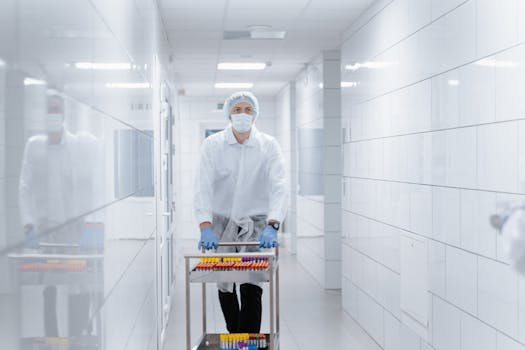Synthetic Biology Safety Officers: Biotech Security Pros
Synthetic biology is a rapidly growing and innovative field that aims to use genetic engineering and biological systems to create new, useful applications. This technology has the potential to revolutionize industries such as medicine, agriculture, and energy production. However, with the increasing use of this technology comes the need for proper safety and security measures. This is where synthetic biology safety officers come in – as trained professionals who ensure the safe and responsible use of this powerful technology. In this article, we will discuss the role and importance of synthetic biology safety officers, also known as biotech security pros.
The Role of Synthetic Biology Safety Officers
Synthetic biology safety officers have a crucial task of overseeing and managing the safety and security of synthetic biology research and development activities. They are responsible for making sure that potential hazards and risks associated with biotech work are identified, mitigated, and properly communicated. This includes maintaining a safe working environment, implementing safety protocols, and conducting risk assessments for every step of the process.
Their role also involves staying up-to-date with the latest safety regulations and guidelines set forth by regulatory bodies such as the National Institutes of Health (NIH), the Centers for Disease Control and Prevention (CDC), and other government agencies. This requires extensive knowledge of synthetic biology technology and its potential risks and safety measures.
The Importance of Synthetic Biology Safety Officers
The rapid pace of development in synthetic biology presents new challenges for ensuring safety and security. With the potential for accidental releases or unintentional misuse of synthetic organisms and technologies, it is crucial to have trained professionals who can manage and mitigate these risks.
In addition, the use of genetic engineering in synthetic biology raises ethical concerns related to the potential misuse of technology. Synthetic biology safety officers play a crucial role in addressing these concerns by ensuring compliance with ethical standards and regulations.
Moreover, the presence of synthetic biology safety officers offers reassurance to the public, investors, and stakeholders that safety is a top priority in this advancing field. This is especially important for biotech companies that are seeking funding or partnerships, as they must demonstrate a high level of safety and security in their operations.
Becoming a Synthetic Biology Safety Officer
To become a synthetic biology safety officer, individuals must have a strong background in both biology and safety regulations. Most positions require a Bachelor’s or Master’s degree in biology, biochemistry, biotechnology, or a related field. Additionally, a certification in biosafety or laboratory safety is often preferred.
Experience working in a laboratory or research setting is also highly valued, as it provides hands-on experience with the potential hazards and risks associated with synthetic biology. In many cases, individuals must also pass a background check and obtain a security clearance due to the sensitive nature of the work.
Conclusion
Synthetic biology safety officers play a crucial role in ensuring the responsible and safe use of this emerging technology. They provide valuable expertise in risk management, safety regulations, and ethical considerations, making them an essential part of the biotech industry.
The demand for synthetic biology safety officers is expected to rise as this field continues to grow. Therefore, it is critical for biotech companies and institutions to prioritize the safety and security of their operations by employing trained professionals in this role. Only then can we fully harness the potential benefits of synthetic biology while minimizing its potential risks to society and the environment.











